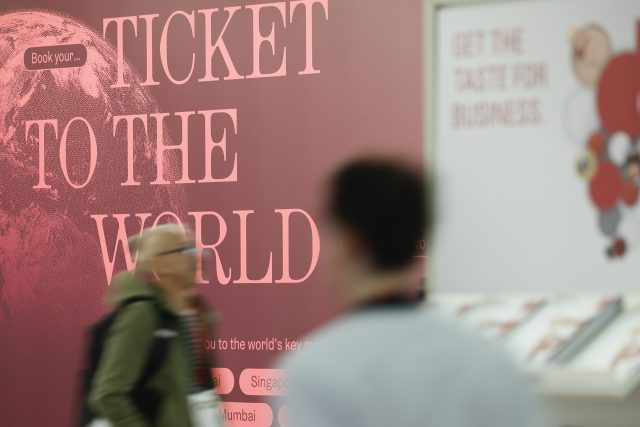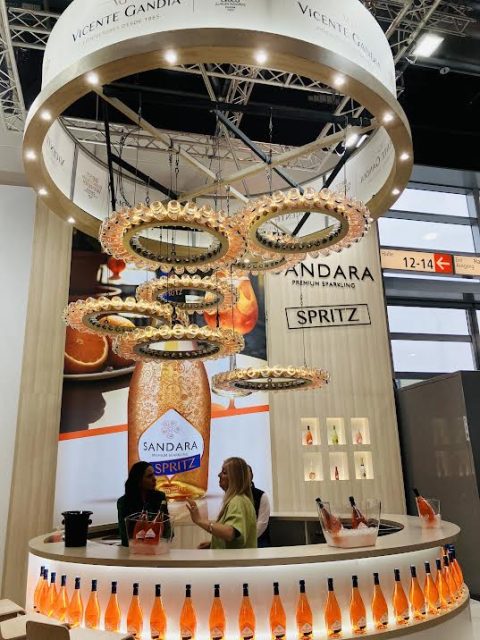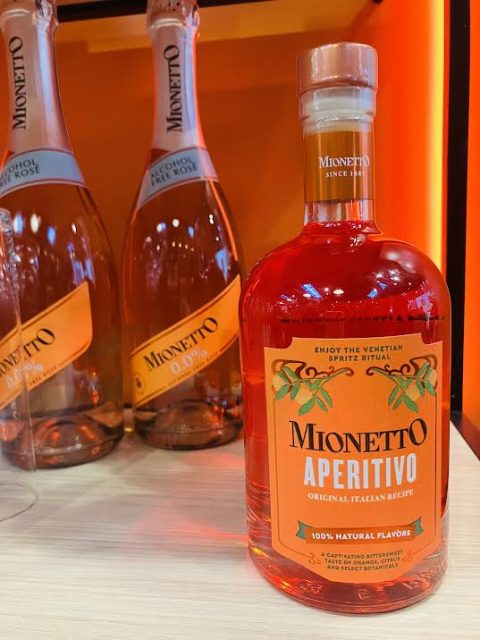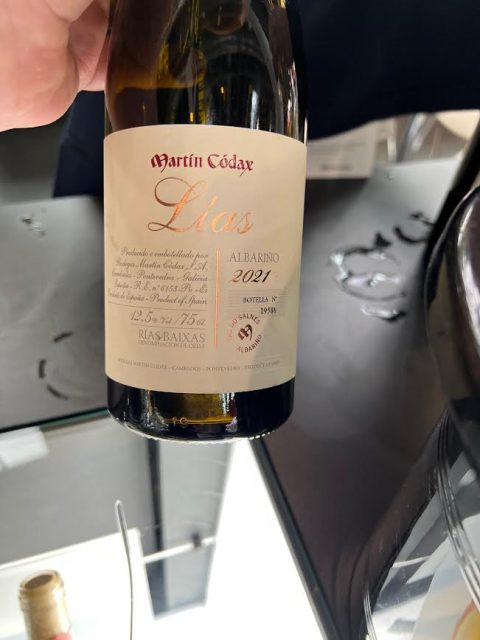This website uses cookies so that we can provide you with the best user experience possible. Cookie information is stored in your browser and performs functions such as recognising you when you return to our website and helping our team to understand which sections of the website you find most interesting and useful.
Four big trends from ProWein 2024
The sheer size of ProWein makes it difficult to see big trends, but there were a few which stood out across the halls.

Low-alcohol spritz
Walking the halls of ProWein 2024, it was impossible to miss the number of drinks brands tapping into the Venetian notion of ‘aperitivo hour’ to promote their spritz products.

Interestingly, many were either low-alcohol or alcohol-free. Orange liquids served in glasses full of ice were everywhere, from Henkell Freixenet’s new Mionetto Aperitivo product (available in alcohol, low-alcohol and alcohol-free versions), which was exclusively unveiled at the show, to the Mediterraneo Spritz made by Barcelona-based organic Cava brand Hola.

db also spotted Sandara Premium Sparkling Spritz (at 7.5% ABV) from the Valencian fizz makers, and the irridesecent Glitter Spritz Aperitivo (0.4% ABV) from Berlin start-up Flaschenpost Gin, boasting flavours of “fruity bitter orange, rhubarb and herbs”.
Lightweighting bottles
Lightweighting a glass bottle has been seen as a panacea to sustainability, and at ProWein there were many producers eager to explain how its lighter bottle was better for the environment and a more sustainable offering than previous iterations.
A big claim is more than 50% and up to 60% of the carbon footprint of wine is in the bottle itself. But one producer called this “subjective” and even went as far as to claim some were over-egging its sustainable potential.
For example, a heavy bottle created using 100% renewable energy with delivery through sustainable transport logistics would obviously be better across scope 1, 2 and 3 emissions than a very light bottle using fossil fuel energy for creation and complex, carbon-heavy transport.
Recyclability is also a big factor, as glass is endlessly circular, whereas other packaging like plastic is, of course, not, and potentially more carbon intensive, as one German producer explained. This is the same with paper packaging, of course, which has intensive water and energy use too.
Apart from the well-drilled B Corp wine producers, which are a gold standard for sustainability, lightweighting is being understandably used as the easiest ‘quick win’ for green credentials. Many have managed to produce bottles under 500g (without liquid). At the premium end of the market, bottles can be more than 800 to even 1000g, so this is an impressive achievement.
While lightweight bottles appear to be a starter-for-ten on the road to net-zero production, but there was also the clear sense among producers that they want to look deeper at overall energy use and logistics, and the holistic lifecycle of products.
This obviously requires considerably more challenging conversations with suppliers, and a lot of upfront investment in lower-carbon manufacturing technology.
It will be interesting to see how this theme progresses as the net zero journey continues.
Albariño
The rise and rise of Albariño continues, as was showcased throughout many of the halls of ProWein, especially in its growth in the US marketplace, but also punchy sales figures across Europe and Asia.
Spain’s Rías Baixas, which has 90% of its plantings being the variety, reported that its exports to the US were 30% of its total export share by volume, and the sales growth are at or near to double-digit in the last few years, increasing by 9% in 2022 by volumen and 13.5% by value.
Many producers are creating a variety of bottles in the DO, including aged Albariño, such as Bodegas Martín Códax and Paco and Loco.

Indeed, despite it being the popular Galician grape across northwest Spain and Portugal, due to its popularity it is now being planted in other global regions.
It has also being grown in South Africa, Chile and New Zealand, where there are successful growing conditions in Marlborough and Gisborne.
In addition, plantings in Uruguay have grown substantially, and the grape variety is fast becoming the country’s signature grape. Most recently there are reports of it being planted in the UK as well.
Celebrities
The link between celebrities and wine shows no sign of abating, especially with the launch of the latest Iron Maiden alcoholic product, Darkest Red, which is a red wine from Douro DOC.
There appears to be something of a trend for rockers to produce a wine, with perhaps most infamously Maynard James Keenan from the band Tool going as far as investing heavily into the Arizona wine world, recently opening a new seven-acre facility in Cottonwood including a Merkin Vineyards hilltop winery & trattoria, and Caduceus Cellars facility.
The number of wines available now with celebrity collaboration or endorsements is growing and growing, and there is Kylie Minogue’s collection of wines, Gary Barlow, Sarah Jessica Parker, Brad Pitt and Angelina Jolie, and Snoop Dogg to name just a few of those partnering with a variety of distributors and global producers.
Most recently, Brad Pitt’s friend and Provence neighbour George Clooney has reportedly got involved in the wine game, and is about to imminently launch his own French rosé.
In addition, and as witnessed at ProWein, even footballers are getting a slice of the pie, with the presence of Barcelona and Spanish football legend Andrés Iniesta at the show with his own Bodegas.


